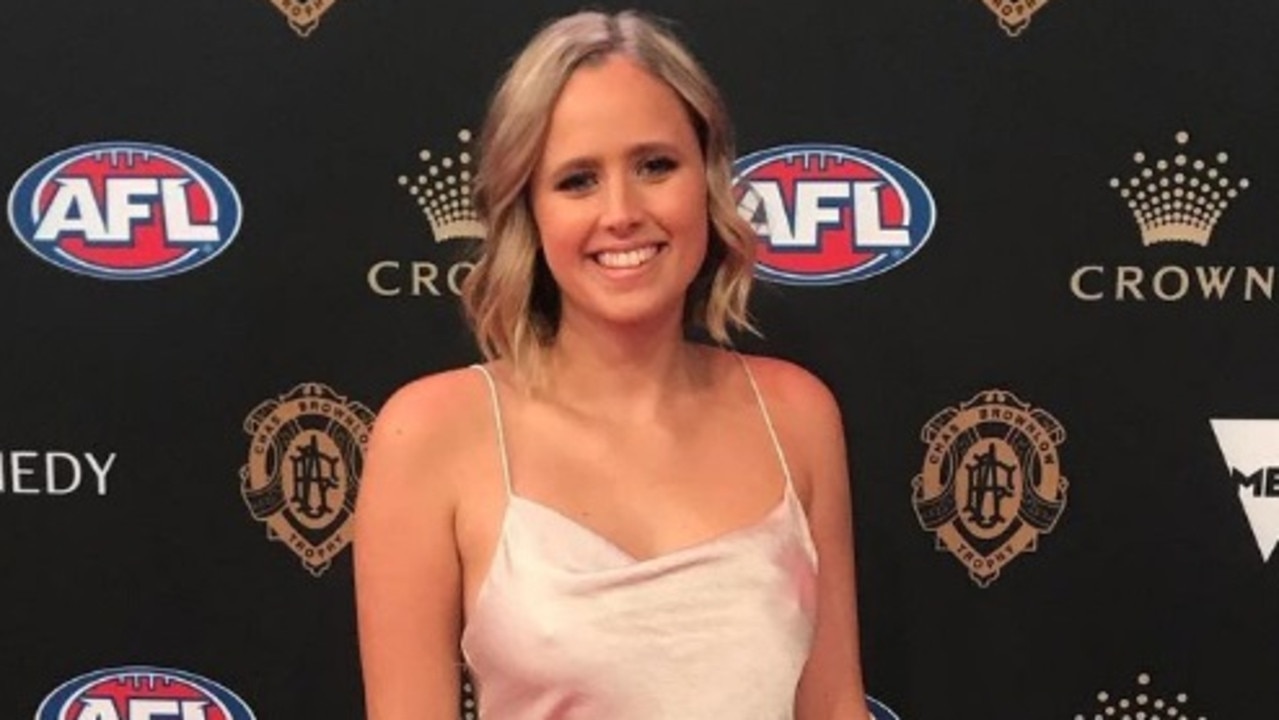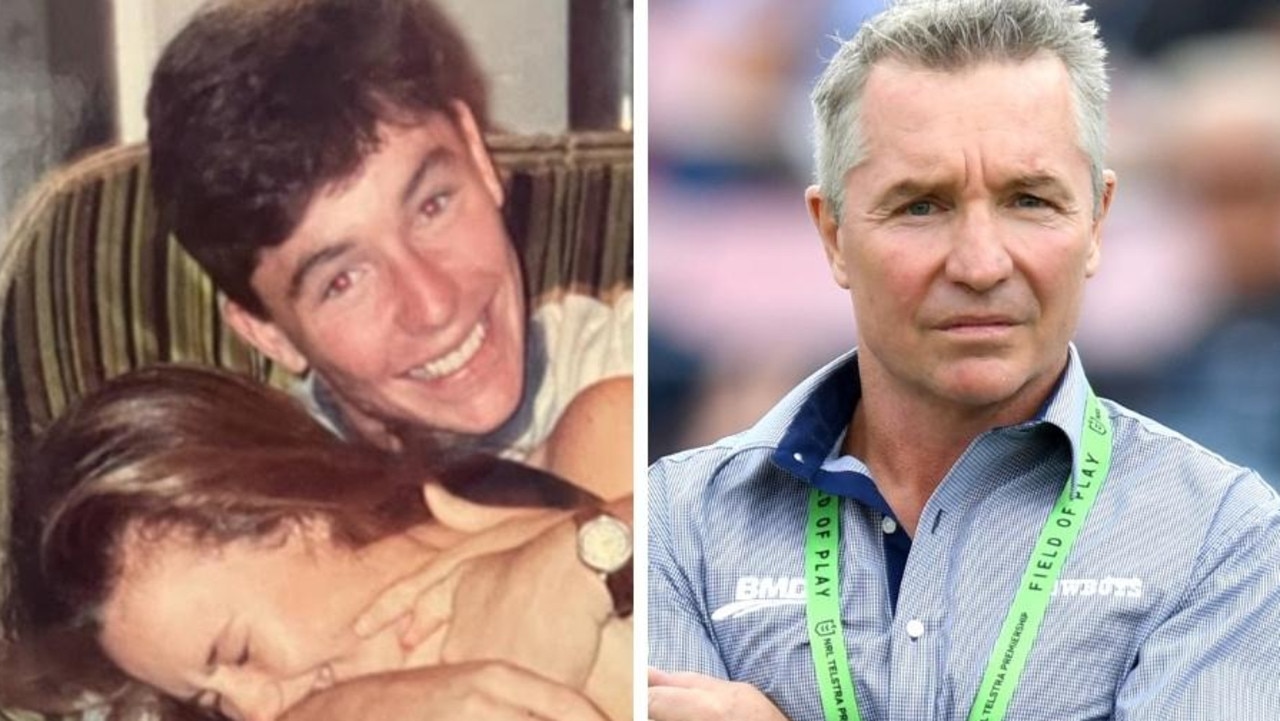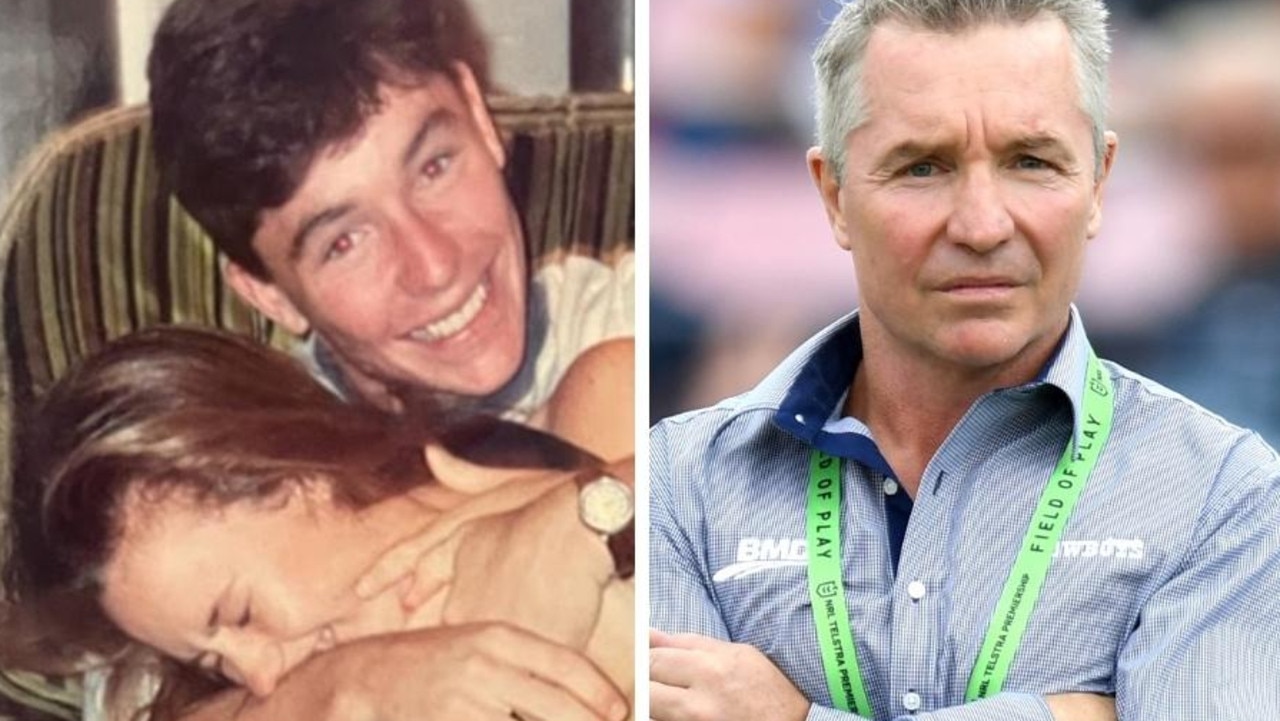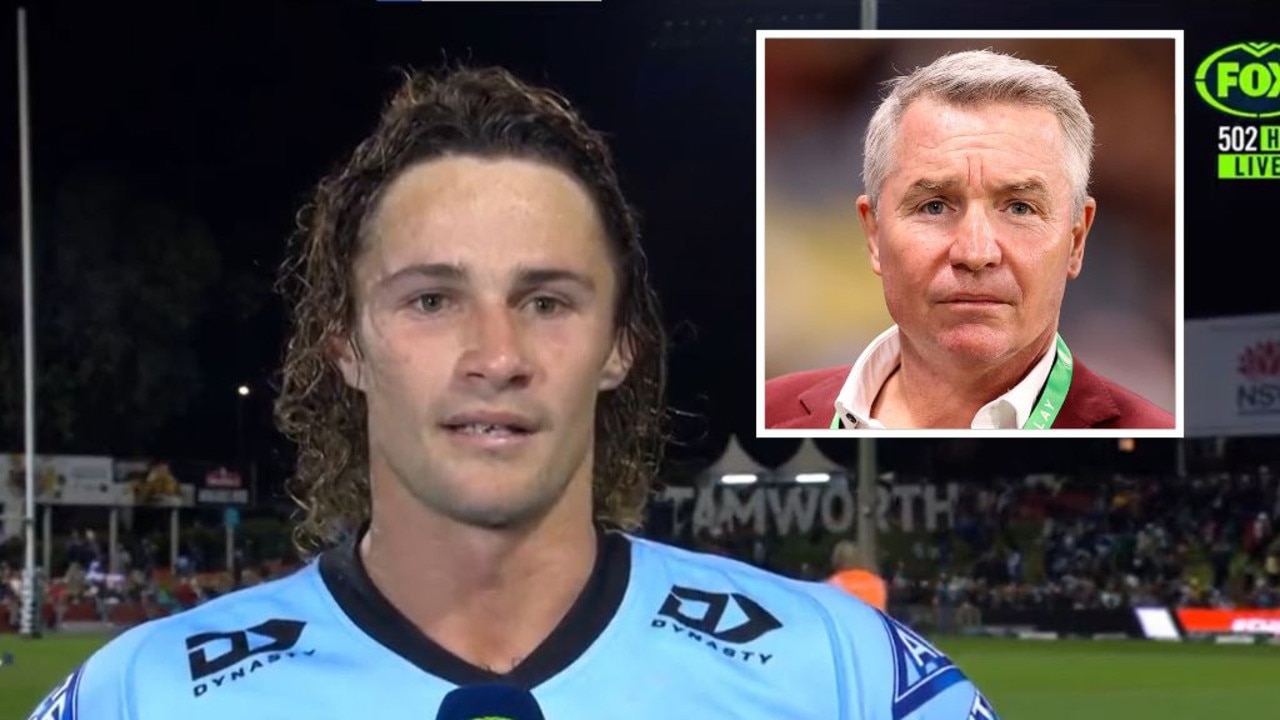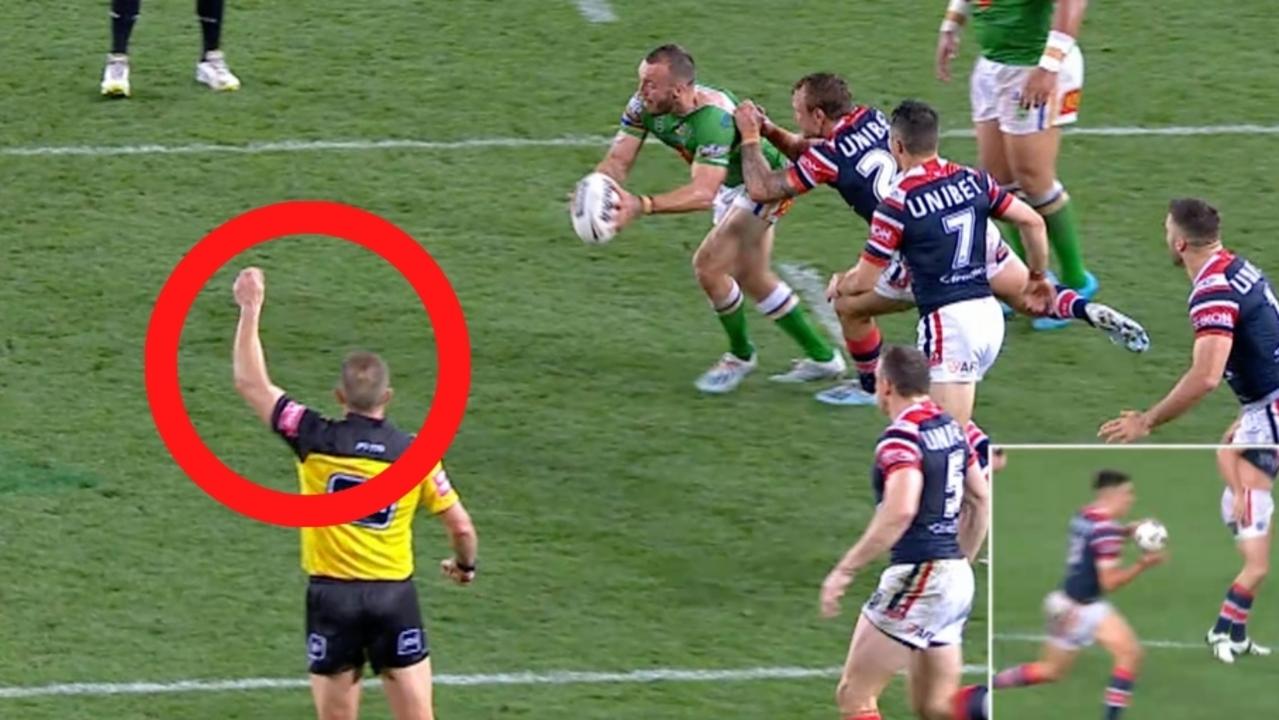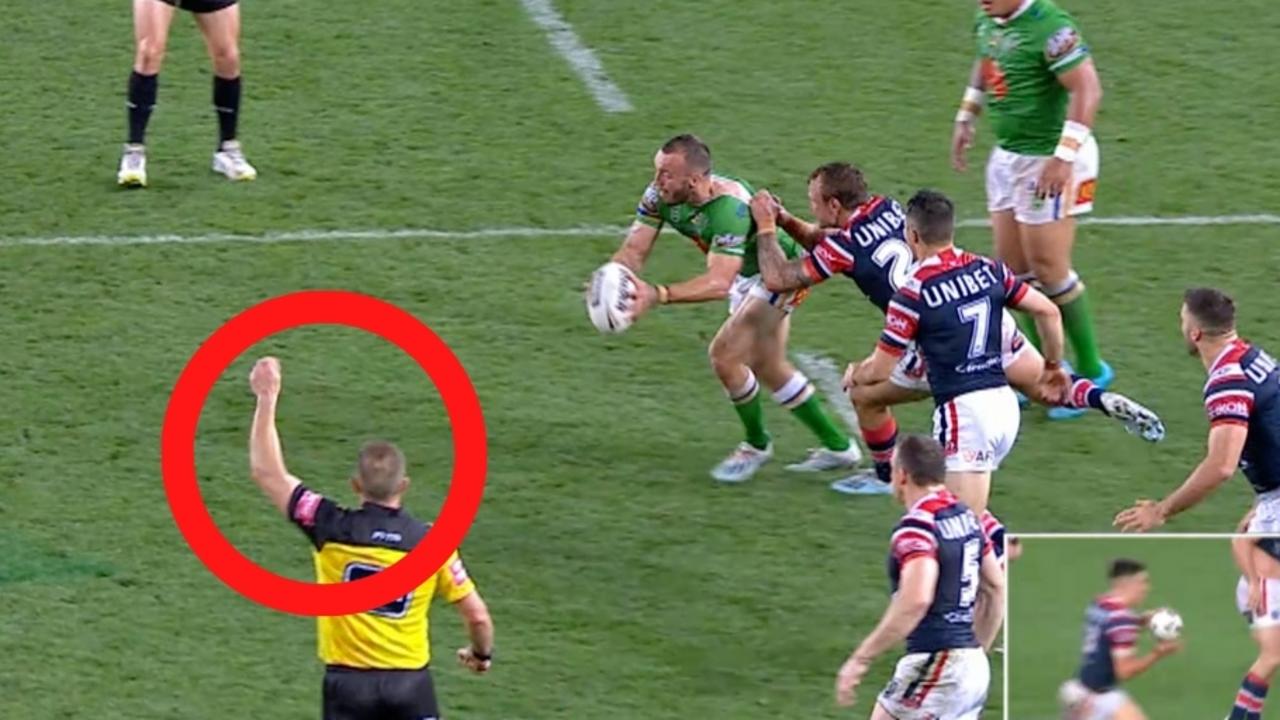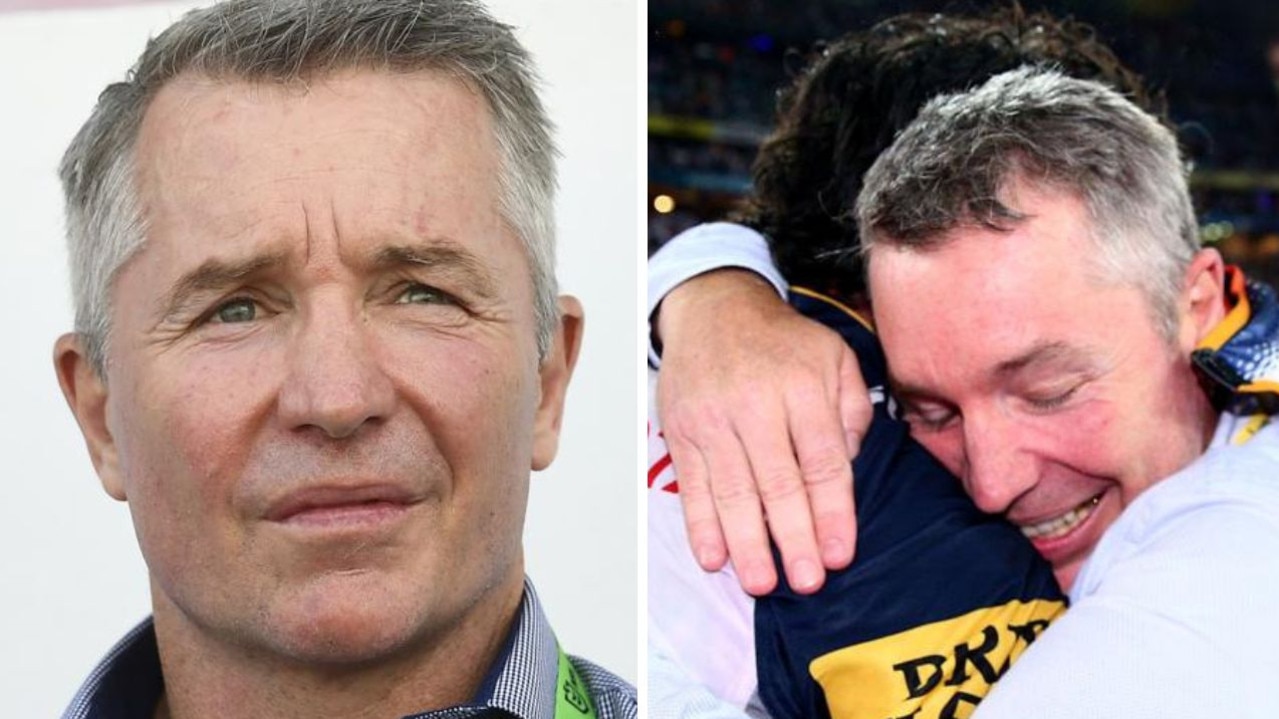The former footy star turned premiership-winning coach passed away at his home in Brisbane on Thursday morning aged 49. It has been confirmed he took his own life.
Green’s wife, Amanda, found him unresponsive at their home after returning home from doing pilates at the gym, according to the Courier Mail.
His death shines a light on a heartbreaking reality so many Australian families face every single year.
On average, male suicides make up about 75 per cent of all suicides across the country each year.
In 2019 men accounted for 2,502 out of a total 3,318 registered suicide deaths in Australia.
Awareness around mental health, particularly in men, has increased substantially over the years, but these figures show we still have a very long way to go.
Mental fitness advocate and founder of the Gotcha4Life foundation, Gus Worland, said Green’s death draws a “line in the sand” for Australians.
“Unfortunately, we lose seven blokes a day every day, two women a day every day, we have people attempting suicide at a rapid rate in Australia. So when someone famous, takes their own life, all of a sudden that shines a light on it,” he told news.com.au.
“But it also should make us realize it’s not just about this moment, but how many other families and communities that have that ripple effect that’s ripping through them right now.
“So at some point, we need to put that line in the sand and say ‘You know what? No more’. We have to really start looking after ourselves better.”
World highlighted the importance of everyone understanding who their “village” is, meaning the people around them who they love and cherish.
It is incredibly important for people to identify their support network and make sure they are investing in these relationships.
Worland said this is all part of working on your “mental fitness” so that you feel comfortable reaching out when things get difficult.
“It doesn’t mean you burst into tears every five minutes or you have a deep and meaningful conversation every time you talk. It means you’ve got that in your locker to be able to have enough emotional muscle to ask for help,” he said.
In Green’s case, Worland pointed out that there were thousands of people who would have stopped everything they were doing and done anything to help him.
“That’s the point we need to get to, where people are asking for help and not making this ultimately very, very permanent decision based on a temporary situation.”
Green had arguably endured the toughest year of his life in the lead up to his tragic death, which came 11 months after he was sacked as head coach of the Maroons following Queensland’s loss in last year’s State of Origin series.
Last February he sold his family home in Townsville for $1.85 million, and admitted it was difficult to let go of the place where his two kids, Jed and Emerson, had grown up.
“It is pretty tough to move and tough on the family,” he said at the time.
On average, one in eight men will experience depression and one in five men will experience anxiety at some stage of their lives, according to Beyond Blue.
Reaching out for help is often easier said than done. For someone who is struggling, admitting that you need help can be incredibly difficult.
For men, this struggle can be the result of societal expectations to be tough and not show emotions.
“It is a difficult conversation because we’ve told all our lives to man up and shut up or take a teaspoon of cement and harden the f**k up,” Worland said.
“Even in primary school you scratch your knee and someone says ‘Come on, up you get. You’ll be right. So it is really instilled in us from a young age.”
It can be incredibly difficult to unlearn these things, but doing so is an important step in changing the shocking statistics we see every year.
One of the key things the Gotcha4Life foundation does is encouraging people to exercise their “emotional muscles” and be “mentally fit” so they cannot only reach out when they need help, but can recognize when others need it too.
Unfortunately, because many people are so used to masking their true emotions, knowing when someone is struggling can be difficult.
“Of course we all look out for our friends and if they’re changing their behaviour, their personality changes, they’ve gone quiet, or they’re just looked like they’re not well, that’s easy. But we don’t we don’t get to that stage very often,” the Gotcha4Life founder said.
“Paul Green last weekend was at the Cronulla reunion and he was the life of the party. He was playing golf the day before and he was the life of the party.
“My friend that started this whole journey for me. He had the most fantastic day on a Friday. His third and final child of him had just finished the HSC. He was buoyant. And then half an hour later he went and did what he did.”
Green looked delighted as he chatting with journalists during the meeting last weekend.
Former Cowboys chairman Laurence Lancini told News Corp that Green seemed fine three days ago when he spoke to him to say they should catch up for a beer soon.
But Lancini did say that “the last few years had been tough on” the coach.
“The last few years have been a bit tough on him because he hasn’t been coaching in the NRL,” he said.
“I said to Greeny, just take your time and the right opportunity will come along.”
Yes, speaking about these emotions can be uncomfortable, but Worland said if more people focus on getting mentally fit, then they are more likely to start having these awkward conversations and possibly save lives.
World said the simplest message he can give people is “don’t worry alone”.
“That’s a really simple key message to get away from this. So if you don’t worry alone, it means you’ve told someone whether it’s a friend or a family member, or it’s a professional,” he said.
“If you don’t worry alone, you’re more likely to get the help that you need to get through the type of stuff that life throws at you.”
.
